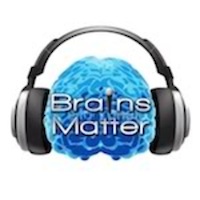072 – Dr Orly Lacham-Kaplan – Stem Cells and infertility
Imagine being called up by the pope and being told you’re doing the “devil’s work” What kind of work could cause such a reaction? It’s actually research work in trying to help humanity – in particular, stem cell research.
Dr Orly Lacham-Kaplan is a senior research fellow at the Monash Immunology and Stem Cell Laboratories at Monash University in Melbourne, Australia.
Listen in to this episode to find out about what stem cells are, how stem cell research can benefit medical science, and some of Dr Lacham-Kaplan’s research into infertility – and how stem cells are a key component in that research.
Please vote for this podcast this month at
![]()
You can donate by clicking on the button above, and subscribe by subscribing in iTunes 


 digg this
digg this




September 18th, 2008 at 02:16
[…] Listen in to this episode to find out about what stem cells are, how stem cell research can benefit medical science, and some of Dr Lacham-Kaplan’s research into infertility – and how stem cells are a key component in that research. […]
September 20th, 2008 at 04:32
Look,I love science can’t get enough and I would be honored if would nominate the RPM podcast at http://www.edgarsoto@podomatic.com.Subscribe to it,it is not bad
October 1st, 2008 at 14:46
Really good episode. Gives a great outline on the topic.
April 10th, 2009 at 23:26
Some believe ethical restraints are needed regarding the use of embryonic stem cells for therapeutic reasons. Yet this therapy improves the quality of life of those with devastating diseases which involves suffering without any relief, otherwise.
So stem cell therapy and research may be the most right and ethical thing to do for such patients. Not only is the tremedous suffering relieved with those possessed with devistating diseases, their functional ability is restored for those who receive stem cell therapy.
Embryos are acquired from fertility clinics (IVFs) that have thousands routinely stored and are abnormally fertilized. This means that they could never go on to become a human, and would be destroyed otherwise.
Ironically, one could argue it is inappropriate to discard what may be valuable and ethical for others, potentially.
Most couples with frozen embryos would gladly give them to such research, surveys have concluded.
These embryos are believed by many to not be morally equivalent to human life, but only have the potential for life. And they are used for therapeutic cloning, known as somatic cell nuclear transfer, and not reproductive cloning.
Ten states have banned this cloning out of ignorance, it seems. Bioethic principles, which are beneficience, or physician-centered decisions, as well as non-maleficence, which is first do no harm, are not corrupted.
Furthermore, autonomy, which is the patient’s right to determine their health, and justice or fairness should remain intact.